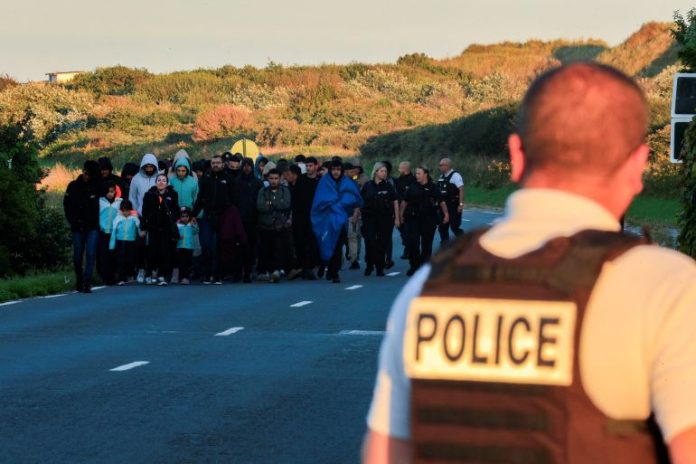The number of migrants who have crossed the English Channel this year has surpassed 25,000, according to official figures released on Thursday, setting a new record for both the number of arrivals and the speed at which they have reached the UK.
The 25,000 mark was reached for the first time in July, which is an unprecedented figure. Compared to previous years, there has been a significant increase. In 2020, the number of such crossings was 8,461, in 2019 — 1,835, and in 2018 — only 297 people. Moreover, the latest data for that year was only published on 3 November. According to current statistics, by the end of April 2025, the number of crossings had reached 10,000, and by the end of June, it had already reached 20,000.
In addition, in June, the authorities reported an increase in the number of days with favourable weather for crossing the strait in both 2024 and 2025, which could also have contributed to the increase in migration.
On July 23, new sanctions came into force in the UK aimed at curbing the flow of illegal migrants crossing the English Channel, which separates the UK from France. Thousands of migrants and asylum seekers, mainly from the Middle East and sub-Saharan Africa, continue to arrive in the country in small boats, mostly inflatable, after illegally entering France or, less frequently, Belgium.
Tackling migration
To combat illegal migration, the British authorities have decided to cooperate more closely with France, the country from whose north-western coast most of the boats depart. Earlier this month, Prime Minister Keir Starmer announced the launch of a Franco-British pilot project. Under this agreement, the UK undertakes to return some illegal migrants back to France and, in return, accept an equal number of asylum seekers already in France who have not attempted to cross the border illegally. This “one in, one out” principle is intended to reduce the incentive to make the dangerous crossing.
Such sanctions are a relatively new step in European practice in combating illegal migration. Usually, the emphasis is on tightening border controls and complicating the procedures for legalising migrants, including increasing the requirements for obtaining visas, residence permits and refugee status, as well as extending the time limits for processing applications. Pressure on the organisers of illegal transport is rarely applied due to doubts about the effectiveness of such measures.
Meanwhile, opposition forces in the UK, particularly the Conservative Party, have criticised the government’s initiative. According to MP Chris Philp, sanctions are unlikely to solve the problem:
“You’re not going to stop people crossing the English Channel by freezing accounts in Baghdad or banning a boat dealer from Damascus. Every day, crowds of young men arrive in the country on boats bought online, led by human traffickers who mock our laws and profit from our weakness,” he said.
